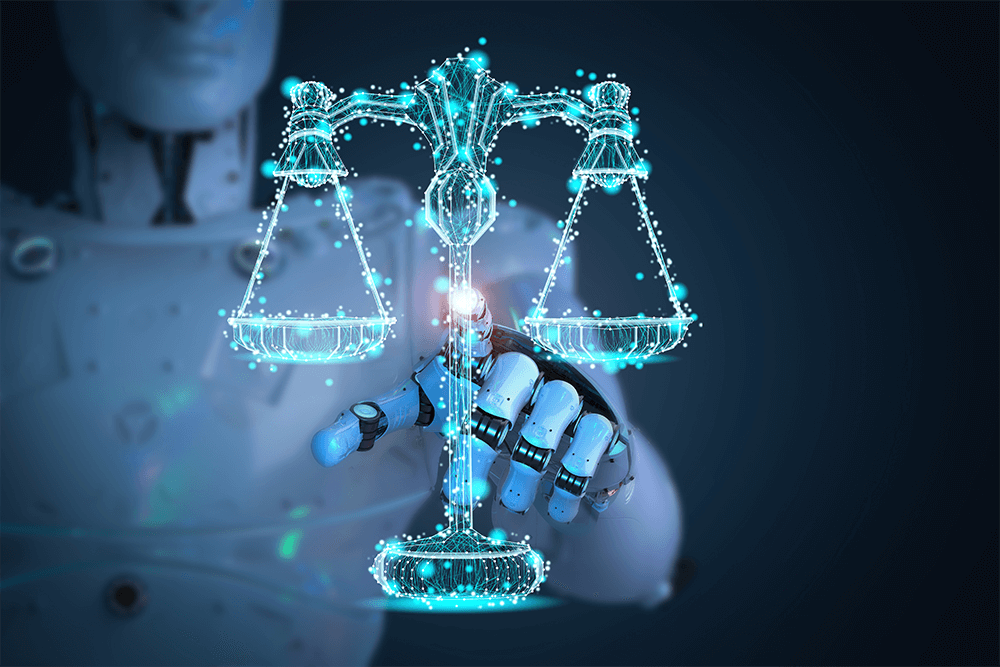Building legal boundaries for Artificial Intelligence in borderless digital world

By Elgun Safarov I AzerNews
The intersection of artificial intelligence (AI) and international law is rapidly evolving as technological advancements redefine the parameters of legal frameworks worldwide. As AI systems become increasingly integral to various sectors, spanning defence, healthcare, social policy and commerce, there arises an urgent need to establish robust international legal standards that address the unique challenges posed by these technologies. This necessitates not only a thorough understanding of existing legal principles but also an innovative approach to crafting regulations that can accommodate the dynamic nature of AI.
One of the primary concerns surrounding AI within the realm of international law is the question of accountability. As AI systems make autonomous decisions, particularly in military applications, the challenge of attributing responsibility for actions becomes complex. This ambiguity can undermine existing legal doctrines, such as the principles of liability and culpability, and necessitate the development of new frameworks that can clearly delineate the responsibilities of developers, operators, and the technologies themselves. International treaties may need to adapt or emerge to govern the ethical use of AI, particularly in areas prone to misuse, such as surveillance and warfare. United Nations (UN), Non-Aligned Movement (NAM) and other regional organisations are already preparing guidelines and rules for the AI transformation and preventing negative results of this innovative instrument.
Furthermore, the global nature of AI technology means that regulations cannot be limited to national jurisdictions. Collaborative international efforts will be crucial to ensure that countries adopt harmonised standards that promote ethical AI development while preventing a race to the bottom in terms of regulatory safeguards. This could involve establishing an international body dedicated to monitoring AI advancements and enforcing compliance with agreed-upon legal frameworks. As nations navigate the intricacies of these technological challenges, proactive engagement and cooperation in the realms of policy development and legal regulation will be essential for fostering an environment where AI can thrive responsibly on the global stage. Human rights and freedoms protection and protection of the international peace and security are the main directions for the future international body responsible for the regulation of AI international relations.
The United Nations Convention against Cybercrime, adopted by the General Assembly of the United Nations (by resolution 79/243), did not regulate violations of international law principles and the human rights system by AI. We have only several countries which adopt national legislation acts and regulations (UK, USA and France), special strategies, preventive measures and partial responsibility in the criminal law. China, USA, Kazakhstan, Türkiye, Azerbaijan and other countries already implemented AI for space technologies and navigation, telecommunication and cybersecurity projects and etc.
Who is responsible for the implementation of AI as a weapon during military conflicts or human rights violations, cyberbullying and cybercrimes in international law? AI and the rule of law, AI peace-building, AI and international relations, diplomacy and etc.
What are the main challenges for the AI generation in front of the new version of World War?
I think regulations must cover not only the military, economy, and financial spheres, but especially the human rights system, refugees and migrants, child rights and interests, women's policy and gender equality.
In a nutshell, addressing the implications of artificial intelligence within international law is not merely a matter of adapting existing frameworks; it requires a concerted effort to reimagine how we govern technology in a globalised world. As the capabilities and applications of AI continue to expand, the legal community must rise to the challenge, ensuring that the rule of law evolves in tandem with technological progress, thus safeguarding both innovation and fundamental human rights.
Photo credit: Bernard Marr & Co.
-----------------------------------------
Elgun Safarov is an expert on international law, Doctor of Philosophy (PhD) in Law and United Nations CEDAW Committee member
Here we are to serve you with news right now. It does not cost much, but worth your attention.
Choose to support open, independent, quality journalism and subscribe on a monthly basis.
By subscribing to our online newspaper, you can have full digital access to all news, analysis, and much more.
You can also follow AzerNEWS on Twitter @AzerNewsAz or Facebook @AzerNewsNewspaper
Thank you!
